Hawaii has seen a notable increase in travel-related dengue cases in 2024, raising concerns about the potential for the disease becoming endemic in the islands. With 12 cases just reported so far this year, up from only a couple earlier in the year, public health officials are closely monitoring the situation and implementing measures to prevent trouble.
Recent surge in Hawaii Dengue cases.
The Hawaii Department of Health (DOH) recently confirmed the state’s 12th case of dengue fever this year. These cases are believed to be associated with individuals who have traveled to regions experiencing higher-than-normal dengue activity, such as parts of Central and South America and Asia.
The concern is that if a mosquito bites any infected people in Hawaii, the infection could be transmitted to others, including visitors, and be a more permanent issue.
Of the 12 cases reported, eight have been on Oahu, three on Maui, and one on Kauai. This increase from earlier in the year, when there were just two cases, highlights a significant uptick and raises questions again.
Factors contributing to the risk of endemic Hawaii dengue fever.
While gratefully, Hawaii is not currently a site of endemic dengue, several factors could contribute to a shift:
Increased number of cases: The growing number of travel-related cases increases the likelihood that an infected individual could contribute to a local outbreak. Each new case represents a potential opportunity for the virus to be transmitted to local mosquitoes, which could then spread dengue further. The more cases there are, the greater the chance that Hawaii mosquitoes will become dengue carriers, especially if control measures are not immediately effective.
Environmental conditions favorable to mosquito breeding: Hawaii’s climate, particularly in the rainy season, provides ideal conditions for mosquito breeding. With forecasts of tropical storms, like this weekend’s Tropical Storm Hone, there is an increased risk of standing water, which serves as a breeding ground for mosquitoes. Public health advisories have urged residents to eliminate standing water around their homes to reduce mosquito populations and prevent the spread of dengue.
Global travel and dengue: As global travel continues at a very high pace, Hawaii is seeing a greater flow of travelers who have been to dengue-endemic regions. This increases the chances of introducing dengue into Hawaii. The recent cases involving travelers returning from international travel underscore the need for greater vigilance and quick action to prevent local mosquitoes from becoming dengue-infected.
Aedes aegypti and Aedes albopictus mosquitos are present in Hawaii. Even though the disease has not established a local transmission cycle here, the presence of these dengue-capable mosquitoes creates a continual risk. That risk increases with each travel-related case that brings dengue to the islands.
How to Prevent Endemic Dengue in Hawaii?
To prevent dengue from becoming endemic, Hawaii must continue to implement strong public health measures:
Aggressive mosquito control: Continued surveillance and control measures are essential to reduce mosquito populations. This includes eliminating standing water, using insecticides where appropriate, and deploying public health teams to areas where cases have been reported.
Public awareness and education: Residents and travelers must be aware of the risks and take precautions, such as using mosquito repellents and wearing protective clothing. Awareness campaigns can help educate the public on reducing mosquito breeding sites around their homes and communities. To our knowledge, the Department of Health has not revealed exactly where the twelve cases have occurred in Hawaii.
Fast responses to outbreaks: Rapid response to quickly contain suspected outbreaks will be critical. This includes contact tracing, medical care, and pest control measures to minimize the risk of dengue spreading.
Dengue in Hawaii is a situation we’re all watching closely.
While not currently endemic here, the rising number of travel-related cases and favorable environmental conditions mean that Hawaii must stay vigilant. This highlights the evolving nature of infectious disease in our globalized world, in which Hawaii travel and climactic conditions can rapidly change the health landscape.
We welcome your input.
Get Breaking Hawaii Travel News
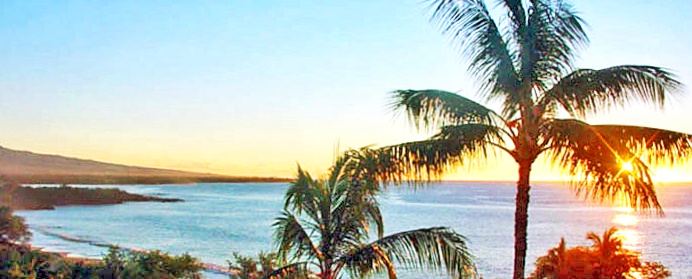

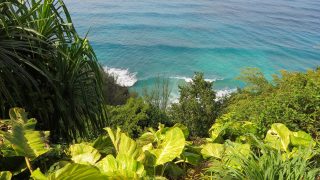

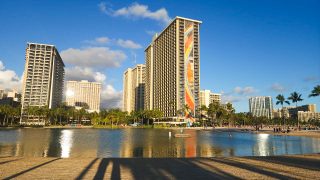
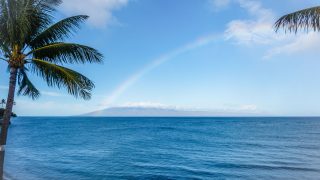
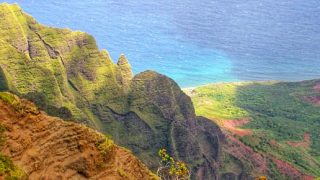
It’s not the only thing in Hawaii that Bites.
It’s surprising that this is, Dengue, hasn’t been a problem prior to this year. 12 cases in 8 months thankfully isn’t the end of the world, it’s just another plausible reason to scare Vacationers away. Could this be the real reason behind this advisory? When it comes to Hawaii, anything is possible.
Ernie,
I don’t believe that the intent is to scare visitors, but to inform them. Since there is no cure for Dengue Fever, and it can be severe, it’s best to take precautions. But one has to know when & where there is an outbreak, in order to take precautions. Previous outbreaks in Hawaii include 2001-2002 (Maui, Oahu, & Kauai), 2011 (Oahu), and Big Island (2015-2016). These have resulted from infected travelers from countries where Dengue is endemic, per the CDC website: Caribbean, Central America, South America, SE Asia, & South Pacific Islands.
Hawaii makes tourists only apply certain sunscreens without the ingredient that destroys coral reefs. If local’s and tourists are to apply mosquito repellents to avoid getting bitten then how does this affect marine life when people enter the water? Don’t bug repellent wash off when swimming, surfing or kids playing in the water at the beach? How do you keep from getting bitten when in a swimsuit or shorts? Run Fast or Don’t go near water. Is this sickness contagious through the air after one has been bitten from a mosquito in a case human to human?
Don,
Dengue is not contagious in that it is not spread human-to-human. Dengue is only spread by the bite of an infected mosquito. That’s why control of Dengue involves indoor isolation of infected humans so that they don’t get bitten again by other mosquitos & infect those mosquitoes & thereby spread the disease further. Humans remain the primary “reservoir” for Dengue, but it can also infect other mammalian species.
With Dengue, “an ounce of prevention” is literally worth everything, because there are no cures.
I came down with Dengue when visiting Maui several years ago. Also bitten by a poisonous insect, both because we spent quite a long day at Iao Park. My friend did not get stung or sick. Dengue is no joke. Wear protective clothing and apply insect repellent!! Don’t linger where there are a lot of bugs!!
Thank you for the opportunity to keep up with the current events on the Hawaiian Islands.
I lived on the Big Island for a short time.it was a beautiful experience.
Some day I hope to return.
In the meantime I’m able to keep abreast of informative news.
Thank you ,
Thanks for the Dengue Fever alert. This is not a trivial disease. The old name for Dengue Fever was “break bone fever” because it can be so painful. The mortality rate for first-time Dengue is 1%, if treated, but can be 20% if not treated. The mortality rate for a second-time infection of Dengue is at least 5%. This is a multi-system (bodily organ) disease for which there is no cure. There are four main strains of the Dengue virus, and there are no anti-virals for any. The only vaccination that is FDA-approved (“Dengvaxia”) is currently only approved for children, very limited/restricted use, is only currently available in Puerto Rico, and the manufacturer recently (this month) announced they will stop production due to lack of demand.
Fortunately, the Hawaii Department of Health, has for decades, been extremely effective in controlling & eradicating Dengue Fever in Hawaii. Public awareness and cooperation with mosquito control is critical. {I’m an M.D.}
Dengue I caught while visiting Maui was the sickest, most painful illness I have ever had. The fever was causing a lot of pain all by itself, but Dengue multiplied that pain. Pain meds didn’t help much, and I was in so much pain, I was hallucinating. I think I caught it while visiting Iao Park on Maui. We were taking lots of pictures around the rushing stream that originated in the Iao valley. Such a gorgeous place, but I was so violently ill afterwards. Years later, I still have a great deal of bone pain, mostly in my limbs, that still shoots lightning bolts of severe pain right out of my bones. I think it is a lingering effect of Dengue.
The Third World continues its inexorable creep into ours doesn’t it?
Best Regards
I was just thinking the along the same lines … . with power cuts & communicable disease(s) !